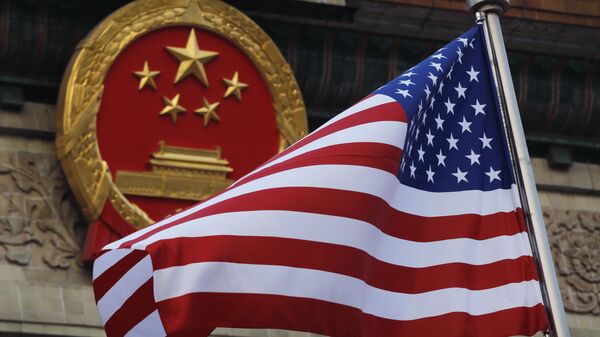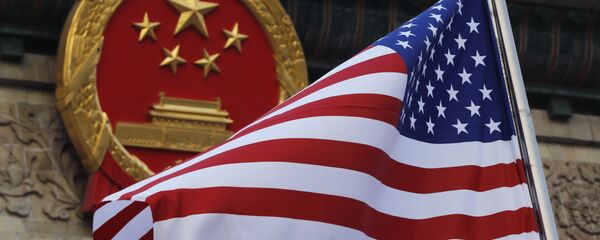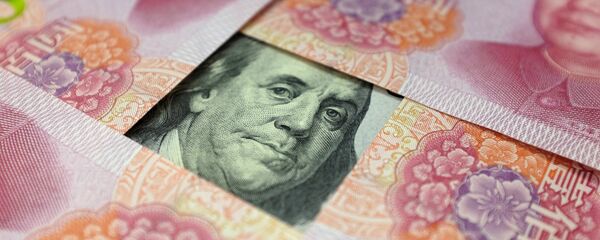The standstill agreement on the introduction of higher tariffs will last 90 days and this time will be used for bilateral negotiations. China has agreed to buy US agricultural and industrial products 'in very substantial quantities'.
Exact numbers have not been specified So far, only the overall framework of the arrangements is known — in fact, it was this goal that was set at the meeting between Trump and Xi Jinping.
The question of the current consensus should not overshadow another more fundamental issue — how much the United States is prepared to accept China's growth, and whether they will continue to rely on containing China, Deputy Director of the Institute of Asian and African Countries of Moscow State University, Andrei Karneev said to Sputnik.
For the time being, both sides call themselves winners but it is clear that no one intends to seriously concede.
'Left out of the context are still the issues of Chinese industrial policy and the claims of the American side about the theft of technologies. Highly likely, this is where it will be the most difficult point to reach a compromise. Meanwhile, there is no certainty about the access of US companies to the Chinese market. Apparently, China will resolve this matter gradually and only in response to the relevant American steps concerning a wide range of issues: from lifting restrictions on the activities of Chinese investors in the US to purely political issues, for example, related to Washington's policy on Taiwan', the expert noted.
READ MORE: Trump Says Talks with Putin, Xi Can Halt 'Uncontrollable Arms Race'
One more expert Mei Xinyu, a Chinese expert at the Chinese Academy of International Trade and Economic Cooperation under the Ministry of Commerce of China, shared his views on the truce with Sputnik, stressing that it was really a temporary one, an attempt to prevent the emergence of a ‘New Cold War' between the two countries.
'The signal achievement of the negotiations between President Xi Jinping and President Trump was to contain, at least temporarily, the dangerous tendency of China and the United States to slide into a New Cold War', he said.
According to Xinyu, China sees its goal in cancelling the already established tariffs, and its further steps can be judged upon the results of the negotiations. Additionally, according to the information released by the parties, the problems regarding the US-China trade imbalance will be solved by increasing American imports to China, and not as a result of restraining Chinese exports, which the United States had previously suggested, the expert said.
He went on to note that in the long-term, for a relatively long period, Sino-US relations will develop unevenly, the alternation of struggle, truce, and negotiations will become the norm, however, the Sino-US trade war will be a long war.
'Since many of the requirements and claims of the United States violate objective economic laws, friction with the Chinese side will inevitably arise. If the United States wants to challenge the objective laws, it is their own business, but China does not have much interest in challenging these laws together with the United States. Nevertheless, a temporary truce between China and the United States is a positive thing for the economies of the two countries, especially for the American stock market', Xinyu stated.
The expert also emphasised that US stock markets were at a historically high level before the trade war kicked in, and China's stock market has been low for two years.
According to the Chinese specialist, the trade war has affected both parties but the impact on the Chinese stock market has been less severe than that of the US stock market.
'A drop in the stock market to a certain limit could trigger a massive futures dumping, which would cause a collapse in the market and could be an early forerunner of the financial crisis', he pointed out.
Considering Trump's desire to get serious concessions from China, what are the limits of compromise on the Chinese side? In which areas will the negotiations with the US be the most difficult? In an interview with Sputnik, Mei Xinyu did not express much optimism about the speedy resolution of controversial issues.
'For the time being it is difficult to assume in which areas the greatest difficulties may arise during the negotiations. One can only say that relations between China and the United States will continue to be a difficult alternation of confrontation and negotiations, but I don't believe that a consensus will be reached soon. The level of trust in the American administration is very low. There are many examples of unilateral termination of agreements by the Americans. If the United States does not pay the real price, the problem will not be solved. From the point of view of China, the following aspects are fundamental. First of all, China can even out the trade balance by expanding imports but this is not a mandatory guideline', he said.
READ MORE: Trump Says China Agreed to 'Reduce and Remove' Tariffs on American Cars
Furthermore, China reserves the right to implement such plans to increase production levels such as the 'Made in China 2025' strategic plan.
Many analysts have noted that the current respite is beneficial for China because it allows the country to make adjustments to economic policy. The goal is to prepare the economy for any unexpected turns that seem to have become second nature for Trump and his administration.
The views and opinions expressed by the contributors do not necessarily reflect those of Sputnik.






